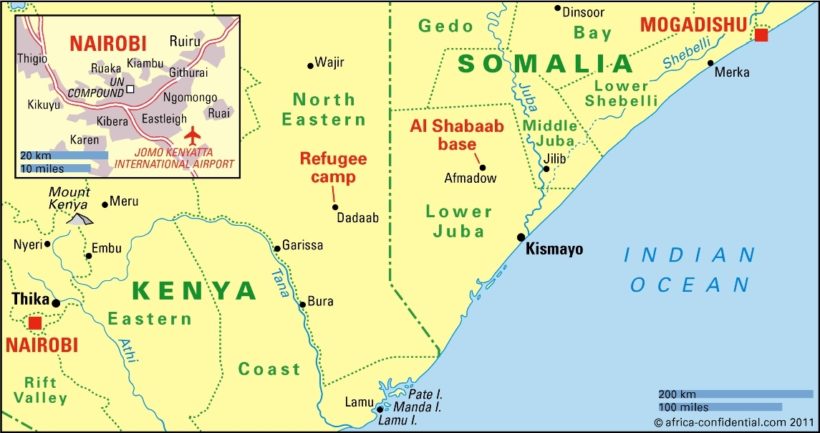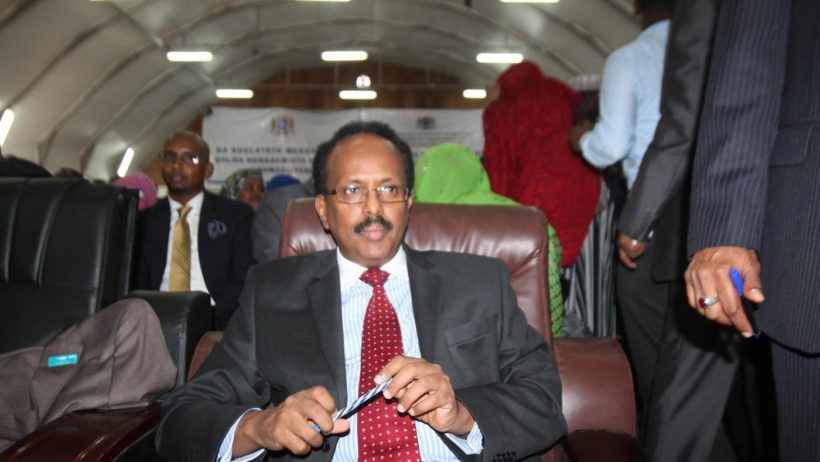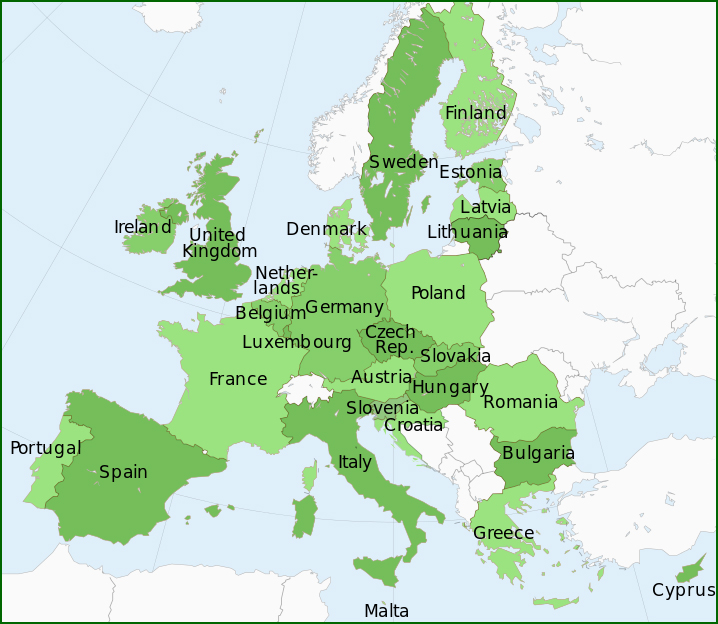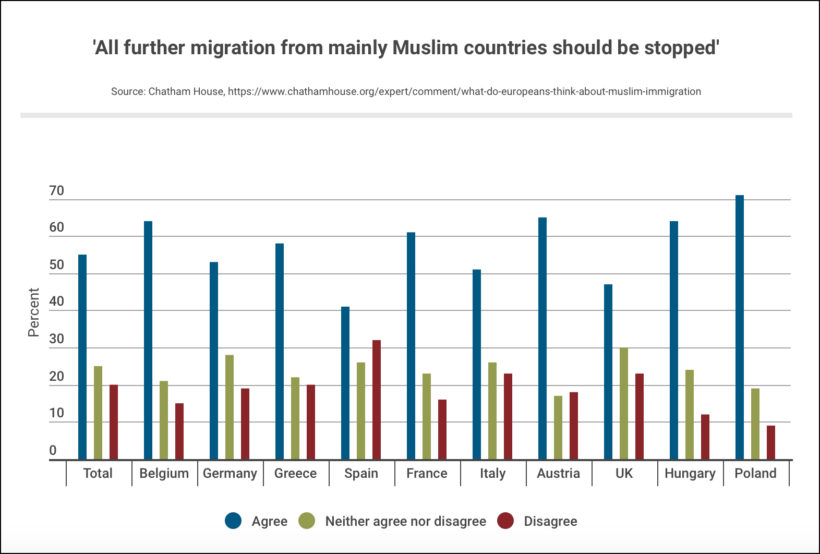News from Kenya, Somalia and the EU
Tuesday's World Events — Posted on February 14, 2017
KENYA – High Court rules against government plan to close the world’s biggest refugee camp
(by Robyn Dixon, Los Angeles Times) – Kenya’s High Court on Thursday, February 9, overturned a government order to close the world’s biggest refugee camp, home to more than 300,000 Somali refugees, including some who have lived there more than 20 years.
The Kenyan government announced in 2015 it would close the Dadaab refugee camp, sending many people back to Somalia, arguing the camp was “an existential security threat to Kenya,” and a “nursery for Al Shabab,” the Al Qaeda linked Somali terrorist group.
The court ruling keeps the camp open and brings more certainty for refugees afraid of being repatriated* to Somalia, where large parts of the south are controlled by the Shabab and a famine is looming. [*repatriate: to bring or send back (a person, especially a refugee) to his or her country or land of citizenship.]
Human rights groups Amnesty International, Kituo Cha Sheria and the Kenya National Commission on Human Rights launched the court challenge against the closure.
In a toughly worded judgment, Kenyan Judge John Mativo ruled Thursday that the Kenyan interior minister and other officials had exceeded their powers and violated the law in their decision to close the camp, which he found would amount to group persecution of Somali refugees. He also found that the move would flout Kenya’s international treaty obligations on refugees.
“The government’s decision specifically targeting Somali refugees is an act of group persecution, illegal, discriminatory and therefore unconstitutional,” Mativo said.
The judge also ruled out the the repatriation of refugees to Somalia, since Kenya had not shown it was safe for refugees to return.
In Somalia, the Shabab has recently beheaded people it accused of collaborating with Ethiopian forces [the Ethiopian military had been fighting the Shabab terrorists in Somalia]. It has killed those who cooperated with the Somali army or allied United Nations-backed African forces, the African Union Mission to Somalia. It has assassinated people working for the government and in rural areas has killed people who disobeyed its harsh rules, such as impoverished people who burned charcoal to survive.
The Shabab forcibly recruits youths to fight and levies heavy taxes in areas it controls, particularly on traders and transport operators.
Human rights groups welcomed the decision to halt the closure of the camp, but the government said it would appeal the decision.
“For us as a government, Kenya will always come first. The lives of Kenyans matter. It is for this reason that we shall be strongly appealing the decision by the High Court,” government spokesman Eric Kiraithe told journalists Thursday in Nairobi.
Kenya has seen many gruesome terrorist attacks by the Shabab, including the 2013 Westgate shopping mall attack in the capital, Nairobi, which killed at least 67, and the 2015 attack on a university in the northern town of Garissa, which killed at least 147.

The government says both attacks were planned by terrorists living in the Dadaab camp.
…The Kenyan government frequently targets ethnic Somalis in security raids, particularly in the Somali neighborhood of Eastleigh, near Nairobi. In 2014, Kenya rounded up more than 1,000 Somalis, including women and children, detained them in a football stadium and deported those without documents.
Dadaab, a series of sprawling settlements as big as a town, sprang up after Somalia descended into war and famine in the early 1990s after the dictatorship of Mohamed Siad Barre fell in 1991. Some Somalis have lived in Dadaab for more than two decades, and many were born there. …
Somalis have continued to flee to Kenya since 1991 as stability has eluded their country, ravaged by famines, droughts, clan warfare and the Shabab. The last big influx of refugees was in 2011, when a famine drove thousands from their homes and some 260,000 people died.
Another famine is looming in Somalia, U.N. agencies have warned, threatening another massive exodus.
SOMOLIA – Parliament chooses a new president with hope for a stable government
Somalia took a halting step toward stability Wednesday, February 8th, by electing a new president, a 55-year-old former prime minister who lived in the United States for many years and is a U.S. citizen.
Mohamed Abdullahi Farmaajo was voted into office by the parliament, which gathered at the Mogadishu airport because it was deemed the most secure place in a capital plagued by suicide bombings and armed attacks by the Islamic terrorist group al Shabab.

Mohamed Abdullahi Farmaajo was elected president of Somalia by lawmakers in a vote held at the Mogadishu airport.
The voting was streamed live online, and celebratory gunfire rang out in Mogadishu as Farmaajo moved ahead. After the result was announced, crowds surged into the street chanting his name, local journalists reported.
“This victory represents the interest of the Somali people,” Farmaajo said after taking the oath of office. “This victory belongs to the Somali people, and this is the beginning of the era of the unity, the democracy of Somalia and the beginning of the fight against corruption.”
Farmaajo was born in Mogadishu and once worked in the foreign ministry of [dictator Mohamed] Siad Barre, which deployed him to Somalia’s embassy in Washington in 1985.
He left the embassy in 1989 to study at the State University of New York in Buffalo. After the collapse of the Siad Barre regime in 1991, when Somalia erupted in clan warfare, Farmaajo sought asylum in the U.S.
He eventually became a U.S. citizen, served as equal employment commissioner for the New York state Transportation Department and wrote a master’s thesis titled: “U.S. Strategic Interest in Somalia: From the Cold War Era to the War on Terror.”
In 2010, he returned to Mogadishu to take up the post of prime minister, a job to which he was appointed.
As prime minister, Farmaajo was seen as a reformer who made sure that security forces got paid, forced lawmakers to disclose their assets and set up an anti-corruption commission.
The vote Wednesday was tinged by corruption. The electors were lawmakers who themselves were chosen in October by 14,000 clan leaders, politicians, elders and community figures in an election marred by vote buying, bribes, threats and at least a few killings.
A local anti-corruption group, Marqaati, reported that more than a quarter of the voters in the October election that it interviewed had been harassed or intimidated and that 32% of elders had been offered bribes.
Votes were sold for as much as $30,000 each and candidates paid more than $300,000 in bribes to get parliamentary seats, the group said.
Several candidates pulled out of the presidential race in protest.
Somalia aims to hold direct elections in 2020, giving ordinary Somalis a chance to vote. Officials have said that doing so currently is too risky, given insecurity and clan tensions.
Farmaajo defeated 20 other presidential candidates. …The incumbent president, Hassan Sheikh Mohamud, was second with 97 votes. A former peace activist, he had faced criticism for being too close to the Ethiopian government, which had sent forces into Somalia to fight Shabab but withdrew them late last year.
The election is a modest step toward political stability. But Somalia remains fragile because of looming famine and Shabab, which has carried out a series of devastating attacks in recent months.
Security forces and civil servants have gone unpaid for months, and the United Nations recently warned that some members of the Somali army could defect to Shabab.
EUROPEAN UNION – Majority in Leading EU Nations Support Trump-Style Travel Ban: Poll
(by Alastair Jamieson, NBC News) – A majority of Europeans would support a Trump-style ban on further migration from mainly Muslim countries, according to a poll of more than 10,000 people in 10 European countries.

An average of 55 percent of those surveyed for London-based think tank, Chatham House, agreed that immigration from Muslim-majority countries should be halted.
The poll released Tuesday, Febuary 7, comes after a bruising 18 months that have seen a string of terrorist massacres linked to radical Islam as well as record-setting levels of migration that have created social tensions across the continent.
Majorities in all but two of the 10 countries polled supported a ban, ranging from 71 percent in Poland, to 53 percent in Germany, 47 percent in the United Kingdom and 41 percent in Spain. In no country did the percentage that disagreed surpass 32 percent.
Chatham House called the findings “striking and sobering” and said in a news release that the figures “suggest that public opposition to further migration from predominantly Muslim states is by no means confined to Trump’s electorate.”
The poll, carried out before President Trump took office, also found that the issue crossed the political spectrum — three-quarters of respondents in support of a ban identified as right-leaning and more than a third said they were left-leaning.

Support for a ban is also higher among older Europeans than younger ones, and there’s an educational divide: less than half of all college graduates supported further migration curbs.
The Chatham House poll, conducted with Kantar Public, surveyed samples of over-18s in Austria, Belgium, France, Germany, Greece, Hungary, Italy, Poland, Spain and the U.K. Fieldwork was carried out between Dec. 12, 2016, and Jan. 11, 2017, and involved 10,195 respondents.
(The news briefs above are from wire reports and staff reports posted at LA Times on Feb. 9 [Kenya], LA Times on Feb. 8 [Somolia] and NBC News on Feb. 8 [European Union].)
Background
KENYA - The Dadaab Refugee Camp:
- The majority of refugees in Dadaab camp in Kenya have come as a consequence of the civil war in southern Somalia as well as due to droughts. The first section was constructed in 1992.
- In 2005, around 97% of registered refugees at Dadaab were Muslims from Somalia.
- The remainder mainly consisted of Muslims from the Somali Region (Ogaden) in Ethiopia, Ethiopian Christians and Sudanese Christians, totaling 4,000 individuals.
- While the Muslim minorities did not face any persecution, tensions with the Christian minorities were reportedly high.
- According to the UNHCR, 80% of residents were women and children and 95% were Somalia nationals as of mid-2015.
- Of the registered refugee population from Somalia, the number of men and women is equal, but only 4% of the total population is over the age of sixty.
- Each year, thousands of children are born in the Dadaab camps.
- A number of adults have spent their entire lives as refugees in the complex.
- In November 2013, the Foreign Ministries of Somalia and Kenya and the UNHCR signed a tripartite agreement in Mogadishu paving the way for the voluntary repatriation of Somalia nationals living in Dadaab.
- Both governments also agreed to form a repatriation commission to coordinate the return of the refugees.
- This repatriation effort was in response to an attack on the Westgate shopping mall in Nairobi, Kenya in September 2013, and belief that Al-Shabaab, the militant group responsible for the attack, was using Dadaab to recruit new members.
- Following the Garissa University College attack in April 2015, where al Shabab gunmen took over 700 students hostage, freed the Muslims and murdered those who identified as Christians, the Kenyan government asked the UNHCR to repatriate the Dadaab refugees to a designated area in Somalia within three months.
- The proposed closure was reportedly spurred by fear that Al-Shabaab was still recruiting members from Dadaab.
(from wikipedia)
SOMALIA:
- U.S. soldiers in Battle of Mogadishu, 1993
- Black Hawk Down, 1993
- Somali Pirates: in 2009, Navy Seal snipers rescued an American cargo ship captain unharmed and killed three Somali pirates in a daring operation in the Indian Ocean, ending a five-day standoff between United States naval forces and a small band of Somali pirates off the Horn of Africa.
- From January 2013: The U.S. re-established diplomatic relations with Somalia in 2013. In 1993 Americans were anguished by scenes of US soldiers being dragged through the streets of Mogadishu by a mob after Somali militants shot down two Black Hawk helicopters. Eighteen Americans died, and 80 were wounded.
- Somalia has not had an effective central government since 1991. But a new Somali administration took office in 2012, ending eight years of transitional rule by a corruption-riddled government.
- In recent months of 2013, a 17,000-strong African Union force, fighting alongside government troops and Ethiopian soldiers, and backed by US aid, finally wrested a string of key towns from the control of Islamist Shabaab insurgents.
- “Today, thanks to the extraordinary partnership between the leaders and people of Somalia with international supporters, al-Shebab has been driven from Mogadishu and every other major city in Somalia,” Secretary of State Hillary Clinton said. “For the first time in two decades, this country has a representative government with a new president, a new parliament, a new prime minister, and a new constitution.”
- The new president, university lecturer Hassan Sheikh Mohamud, was chosen by lawmakers as Somalia’s new president from among a dozen hopefuls in September 2012 elections. He said, “We are working for a Somalia that is at peace with itself and with its neighbors, where its citizens can go about their daily lives in safety. Instability, violent extremism, and crime in Somalia are threat not only to Somalia, but to the region, and the world at large. We look to the future with hope, pride, and optimism.”
- A US official, who asked to remain anonymous, had said no official American aid package was unveiled at Thursday’s State Department meeting. However “the fact that we recognize a government there would allow us to do things through USAID we have not been able to do before,” he said, and would also pave the way for aid from the World Bank and the IMF. (from a 2013 AFP story at yahoonews)
European Union (EU)
Read the original immigration poll at chathamhouse.org
